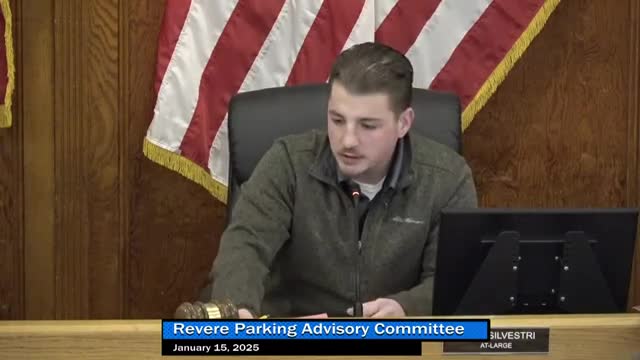Revere advisory committee tables decision on 15‑minute parking courtesy pilot after technical and revenue questions
Get AI-powered insights, summaries, and transcripts
Subscribe
Summary
At its Jan. 15 meeting the Revere City Pocket Advisory Committee discussed a pilot to give drivers a 15‑minute courtesy window via sensors on meters but voted to table the item until the next meeting (expected April 16) so staff can return with cost and revenue-impact information.
Revere City Pocket Advisory Committee members discussed—and then tabled—a proposal to pilot parking‑meter sensors that would automatically grant a 15‑minute courtesy period for short stops.
The pilot discussed at the Jan. 15 meeting would attach sensors to a subset of meters so a vehicle that pulls into a space would automatically receive 15 minutes before enforcement begins. Committee members and the public debated sensor type, per‑unit costs, how the sensors communicate with meters and how the change would affect meter revenues. The committee recorded a motion to table the item until its next meeting (the chair indicated April 16 as the target date). The transcript does not record a detailed vote tally.
Why it matters: committee members said the change aims to reduce short‑term enforcement friction for businesses that rely on fast customer turnover—takeout, quick pickups and delivery drop‑offs—while finance staff flagged the need to show how any lost meter revenue would be offset.
Committee discussion and vendor details
Committee members reviewed two sensor configurations presented at the meeting: a pole‑mounted sensor that monitors one or two adjacent parking spots and a dome‑style sensor that sits on top of the meter. The chair summarized the vendor pricing: “The pole sensors are 265, the dome sensors are 295,” and added that a Bluetooth Low Energy (BLE) gateway would be required to relay sensor data to the meter network.
The committee discussed operating the courtesy only during business hours (for example, daytime retail hours) rather than 24 hours. The parking director explained that meter revenue funds three department employees and parking overhead and said the department would not want to shift costs to the general fund without an offset if the pilot reduces collected revenue.
Public comment and peer examples
Several business owners and residents spoke in favor of testing the program. Resident Hal Abrams described examples he observed in Arlington and Malden where a short courtesy period was offered and said the feature helped reduce tickets for quick errands. An attendee who identified themselves as a corridor business owner said the pilot idea grew from complaints that customers receive tickets while picking up food or goods.
Next steps and staff requests
The committee’s CFO and auditor asked staff to delay a final decision because the sensor pilot would run alongside planned meter‑rate and corridor changes; staff were asked to return with a revenue‑impact analysis and any recommended adjustments to hours or signage. The chair recorded the motion to table the pilot to the committee’s next meeting so staff can provide the requested financial detail and a recommended scope for a pilot.
Ending
Committee members and public commenters repeatedly described the proposal as a pilot limited in scope; staff said they expect to bring back a detailed cost estimate, the proposed number of meters for the trial and draft hours of operation at the April meeting.
